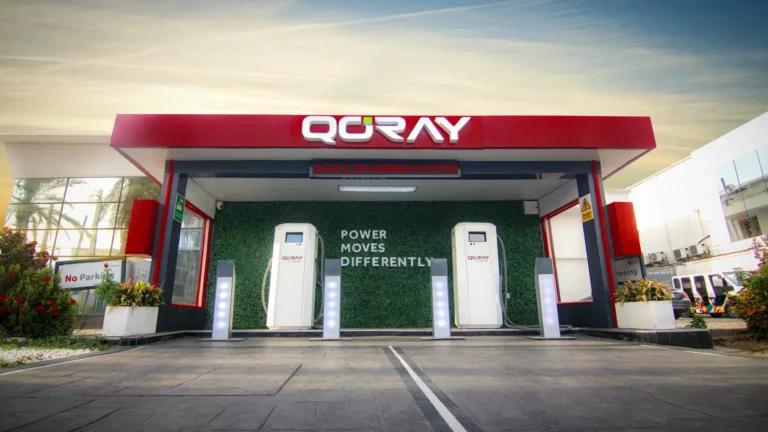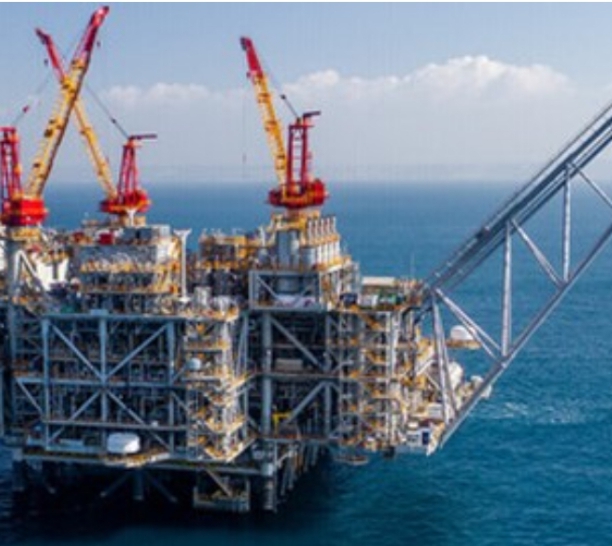By Mohammad Amin Naderian and
Abubakar Jibrin Abbas
Global population growth is leading to ever-rising demand for reliable and affordable energy, a need gas is perfectly placed to meet
Energy poverty is one of the most pressing challenges globally, disproportionately affecting low-income regions where billions lack access to electricity and clean cooking fuels.
As the global population is expected to increase by more than 1.7b by 2050—mainly in Africa and Asia—the demand for affordable and reliable energy will grow, despite energy efficiency improvements. For many, energy access is not just a utility, but a fundamental need tied to poverty alleviation, healthcare improvement and socioeconomic development.
Investing in natural gas as part of a diverse energy mix can foster a more equitable world
However, expanding energy access while limiting greenhouse gas emissions presents a dilemma: how can we meet these pressing development and social needs and still address the challenge of climate change?
Natural gas, as the least carbon-intensive hydrocarbon, offers a viable bridge between these seemingly conflicting objectives; it provides cleaner, affordable, reliable, versatile and flexible energy that supports socioeconomic development while mitigating environmental impacts. Its lower carbon footprint and extensive applications make it essential for tackling the global ‘energy trilemma’: balancing energy security, economic growth and environmental sustainability.
Rising energy demand and sustainable development
Global primary energy demand is expected to increase by 20% by 2050, with more than 80% of this rise concentrated in low- and middle-income countries across Africa and developing Asia, according to the Gas Exporting Countries Forum’s eighth Global Gas Outlook (GGO). In these regions, the drive for improved living standards and economic growth increases energy demand, which is essential for meeting basic needs and advancing UN Sustainable Development Goals. For many of these economies, natural gas provides a cleaner alternative, supporting a transition to modern, sustainable energy sources.
In power generation, for instance, switching from coal to natural gas can reduce CO₂ emissions by nearly half and enhance urban air quality. This shift has proven effective in reducing greenhouse gas emissions and providing a stable power supply, improving environmental and public health outcomes. Moreover, in residential settings, LPG offers a safe and clean alternative to traditional biomass, which is used for cooking in many low-income regions. This transition curtails indoor air pollution, preserves forests (a vital carbon sink), helps alleviate energy poverty and empowers women and children.
Enhancing renewable energy integration
Natural gas also provides backup and stability for renewable energy, addressing one of the primary challenges of solar and wind power: variability and intermittency. As renewable energy use grows, so does the need for reliable flexibility and backup that can stabilise electricity grids, especially during periods of low wind or sunlight.
This is also the case for hydropower in droughts. This reliability is particularly valuable in areas prone to climate variability, such as Latin America, where droughts can limit hydropower generation, as observed in the last four years. By supplementing renewable sources, natural gas enables a smoother, more resilient shift towards clean energy without sacrificing reliability.
It is also likely that natural gas will be the main fuel to support the increased demand for dispatchable electricity created by power-hungry artificial intelligence datacentres.
Supporting industrial growth and food security
Beyond power generation, natural gas has vital applications across industries, notably as the primary feedstock for ammonia production in fertilisers. Fertilisers are essential for boosting crop yields and supporting food security, particularly in developing regions, where agriculture remains a dominant form of livelihood. As food demand rises along with populations, access to affordable fertilisers directly impacts global food security. Additionally, natural gas is foundational to producing materials such as plastics, synthetic fibres and pharmaceuticals, underpinning industrial development, healthcare and economic progress.
This versatility across sectors highlights natural gas’ multi-dimensional role in sustainable development—fuelling industrialisation, supporting public health and enabling countries to build self-sufficient economies. These benefits are essential for emerging economies striving to lift millions out of poverty and improve quality of life, aligning natural gas use with several core Sustainable Development Goals.
According to the GGO, global natural gas demand is projected to increase by 34% from 2023–50. By 2050, natural gas is expected to become the leading energy source, accounting for 26% of the global energy mix—up from its current 23%.
Environmental sustainability via technology
While natural gas is inherently cleaner than other hydrocarbons, recent technological advancements are further reducing its environmental impact. CCUS and methane abatement technologies are helping to minimise emissions across the natural gas lifecycle, from extraction to end-use. CCUS allows industries to capture CO₂ emissions, preventing them from entering the atmosphere, while methane abatement tackles leaks that would otherwise contribute to climate change.
In addition, blue hydrogen—hydrogen produced from natural gas with captured CO₂—emerges as an effective tool for decarbonising sectors that rely on high-temperature processes, such as cement and steel manufacturing. Together, these technologies enhance the role of natural gas as a cleaner energy source, facilitating its integration into the low-carbon economy. For many countries, natural gas, backed by these technologies, serves not just as a bridge but as a sustainable energy source that meets both present and future needs.
Contextualising gas: Transitional versus destination fuel
The role of natural gas varies by region, reflecting different socioeconomic priorities and environmental goals. In developed economies such as Europe, where rapid decarbonisation is a primary objective, natural gas functions as a transitional fuel supporting a structured shift towards renewables by providing backup for intermittent sources. Here, the emphasis is on using natural gas to ensure energy security while meeting ambitious emissions targets, making it a bridge in the journey towards a fully decarbonised energy system.
In contrast, in low-income regions where energy needs are immediate and centred around affordability and reliability, natural gas is seen as a ‘destination fuel’. For these countries, natural gas is foundational to achieving long-term development goals, fostering industrialisation, enhancing food security and alleviating energy poverty. It supports economic growth by providing stable energy for businesses and cleaner options for households, positioning it as an enduring energy source rather than a transitional one.
The ethical case for gas investment
The call to halt fossil fuel investments, including in natural gas, raises ethical concerns, especially for developing regions with low historical emissions and high development needs. Africa, for example, holds approximately 8% of the world’s natural gas reserves but has contributed only 3% of global historical emissions.
For African countries, denying access to natural gas undermines their opportunity for socioeconomic progress and energy independence, potentially deepening global inequality. By providing these regions with a sustainable development tool, natural gas investments align with global equity and fairness principles, offering an ethical pathway for low-income countries to build robust economies and improve living standards.
Conclusion
Natural gas holds a pivotal role in bridging the need for climate action and sustainable development, especially in regions facing severe energy poverty. Its versatility, relatively low emissions and ability to support both renewable integration and industrial growth position it as an invaluable asset in the global energy landscape. By advancing technologies such as CCUS and blue hydrogen, we can further minimise natural gas’s environmental impact, aligning it with long-term climate goals.
As countries pursue energy transitions based on their national circumstances and capabilities, natural gas offers a balanced approach to meeting diverse energy needs while supporting the goals of energy security, socioeconomic equity and environmental sustainability. For many countries, it is more than a bridge, it is a vital foundation for a resilient, just and inclusive energy future. Investing in natural gas as part of a diverse energy mix can foster a more equitable world, addressing immediate development needs while laying the groundwork for a sustainable, low-emissions economy.
Dr Mohammad Amin Naderian is head of the energy economics and forecasting department and Dr Abubakar Jibrin Abbas is senior energy forecast analyst at the Gas Exporting Countries Forum.











v6i8s2
dbbolc